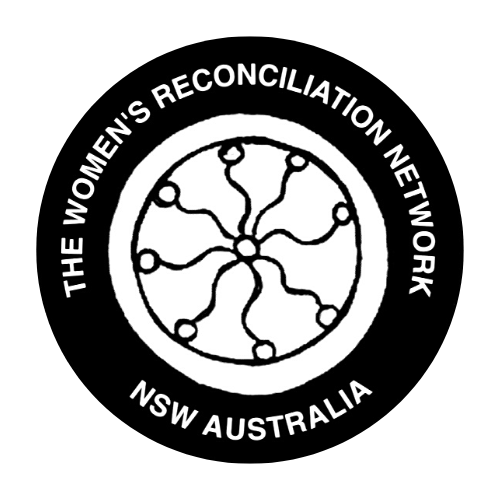Here we tell the story of the Women’s Reconciliation Network, from its origins, in 1996 to its recent 25th anniversary Spirit Event held at its ‘home’, the Community Centre Redfern. We believe it is important to tell this story for several reasons. Firstly it pays tribute to the dedication, courage and perseverance of many First Nations women and their non Indigenous sisters, whom they so generously mentored on the pathways to truth and justice for Australia’s First Nations. There are numerous resources contained in these pages that we hope others will use or adapt to their circumstances to advance the healing of our country. Finally we hope that in recording this story we leave a record of how a grassroots movement can flourish beyond any government initiated ‘reconciliation’ plan.
Since 1996, Women’s Reconciliation Network (WRN) has worked for more than a quarter of a century to put First Nations’ voices, their cultures and right to self determination at the centre of its reconciliation work.
It has done this in many different ways: group facilitation, forums, workshops, training resources, partnerships with schools, letter writing campaigns, film production, book publication, story sharing and reflections, spirit events with symbolic expressions employing paintings, montage and poems.
In the following sections, we draw on our Archives, to provide a glimpse of WRN’s diverse and rich experience as a grassroots people’s movement.
We begin with the story of the birthing of WRN as told by witnesses and enablers of social change. We then provide a brief Timeline of WRN milestones from its birthing in 1996.
We describe highlights of WRN Spirit events, rituals, story sharing, and reflections.
We report the partnerships we developed with communities, organisations, and groups including events held to acknowledge and recognise the work of WRN cultural mentors and its members.
We report highlights of topics discussed in Yarning circles over the years- a number of which found their way into print publications
Our documentation is organic—a continuing flowering of WRN’s evolving history through WRN volunteers providing updated contributions in this website.
You can meet some of our members here
With acknowledgement to the authors: Elaine Telford, Deborah Ruiz Wall, Tracy De Geer and with a contribution from a group of students studying a Bachelor of Social work degree at the Australian Catholic University.



